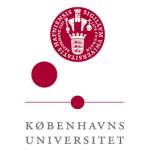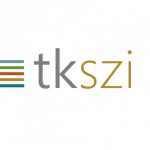ZSI is a private non-profit institute for applied social sciences and a Centre of Excellece for social innovation based in Vienna (Austria).
ZSI implements research and application projects on the social embedding and impact of all types of innovations and contributes to the design and diffusion of socially accepted and sustainable innovations to meet global challenges.
By working in science and praxis, ZSI systematically links research with application. The main areas of research of the department of “work and equal opportunities” at ZSI, where this project would be embedded, are social inclusion and employment, including industrial relations and the monitoring of labour market trends. ZSI has strong methodical competences in applying co-creation and social experimentation
designs as well as in evaluating the efficacy and impact of a policy interventions, projects and programs by deploying participative, quantitative and qualitative methods. We conduct research and advise public authorities and intermediate bodies, respectively, on how to best set up policy interventions jointly aiming at sustainable economic growth and social cohesion.
Read more: https://www.zsi.at/en/home
Employment Relations Research Centre – is a research centre at the Department of Sociology, University of Copenhagen. FAOS was formed on 1 January 1990 as a research group attached to the Department of Sociology. On 1 January 1999 it was given the status of a research centre. Since its formation, FAOS has focused on studies of the labour market, industrial relations and, in recent years, employment relations, applying Danish, Nordic and European perspectives. FAOS’s aims are: to add to the existing fund of basic knowledge of employment relations, thus extending our understanding of the complex pattern of development currently taking place on Europe’s labour markets. This goal is to be achieved by conducting empirical and theoretical studies in Danish, European and global perspectives, to work in close association with related research environments in Denmark and other countries, with a particular focus on participation in joint comparative research projects with an international dimension; to contribute to the training of PhD-students to publish research results; and to maintain a dialogue with the labour market parties and with the relevant administrative/political institutions. In compliance with its aims, FAOS forms and joins many international research networks. The centre participates in research projects carried out in co-operation with the labour-market parties. FAOS is also a national centre under European Observatory of Working Life – EurWORK.
Read more: https://faos.ku.dk/english/
The WZB Berlin Social Science Center conducts basic research with a focus on problems of modern societies in a globalized world. The research is theory-based, problem-oriented, often long-term and mostly based on international comparisons.
Research results are published for the scientific community as well as for experts in politics, business, the media and civic organizations.
As a non-university research institute, the WZB is member of the Leibniz-Association. The WZB closely cooperates with Berlin universities. Its research directors also hold chairs at universities in Berlin and beyond.
The group Globalization, Work, and Production (GAP – Globalisierung, Arbeit und Produktion) is a research group within the research area Digitalization and Societal Transformation at the Berlin Social Science Center.
The research group GAP focuses on the changing ways in which work is organized. On the one hand, globalization has led to the rise of new industrial locations (the BRIC countries, the emerging economies, i.e., fast-growing newly industrialized and developing countries) and to changes in the global footprint of enterprises. This has been accompanied by considerable changes in working and employment conditions in traditional high-wage and low-wage countries. On the other hand, new digital technologies (discussed in Germany under the labels “Industrie 4.0” and “Arbeit 4.0”) are changing the ways work is organized. The implementation of cyber-physical systems and new robotics concepts transforms work in manufacturing and service sectors. The emergence of the platform economy challenges traditional forms of the workplace and employment relations.
Read more: https://www.wzb.eu/en





